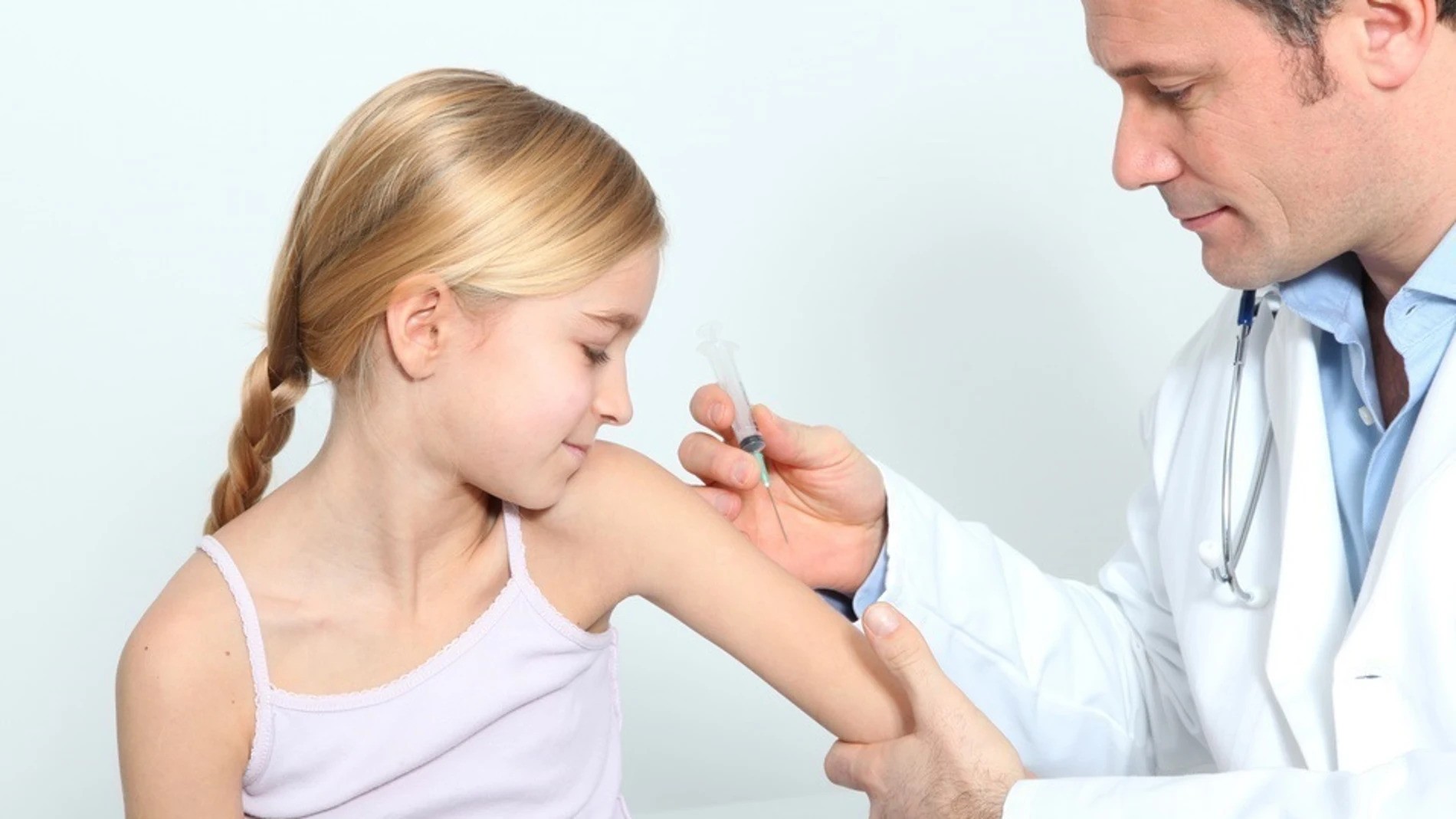Meningitis Prevention And Care - Safeguarding Your Health
Meningitis, whether brought on by bacteria, viruses, fungi, or other pathogens, can result in life-threatening consequences and even death if treatment is not received. Thus, it is critical to prioritize meningitis prevention and care in order to protect the health of the individual as well as the community.
Author:James PierceReviewer:Karan EmeryMar 05, 2024360 Shares29.9K Views

Meningitis, an inflammation of the membranes that cover the brain and spinal cord, is a serious global health and welfare concern. Meningitis, whether brought on by bacteria, viruses, fungi, or other pathogens, can result in life-threatening consequences and even death if treatment is not received. Thus, it is critical to prioritize meningitis prevention and carein order to protect the health of the individual as well as the community.
Symptoms Of Meningitis
Meningitis, which is inflammation of the membranes surrounding the brain and spinal cord, can present with various symptoms. These symptoms can include:
- High fever -Fever is often one of the first signs of meningitis.
- Severe headache -Headaches associated with meningitis can be intense and persistent.
- Stiff neck -Neck stiffness, especially when trying to touch the chin to the chest, is a classic symptom.
- Nausea and vomiting -These symptoms are common and may be severe.
- Sensitivity to light (photophobia) -Bright lights can cause discomfort or pain in the eyes.
- Confusion or altered mental status -This might range from mild confusion to more severe symptoms like delirium or coma.
- Seizures -In some cases, seizures may occur.
- Skin rash -In certain types of meningitis, a rash may develop. This rash may be a sign of meningococcal meningitis, which requires urgent medical attention.
- Difficulty concentrating -Mental fog or difficulty focusing can occur.
- In babies and young children -Symptoms may include irritability, poor feeding, high-pitched crying, and a bulging fontanelle (soft spot on the top of the head).
Types Of Meningitis
The primary causes of meningitis are viral and bacterial infections, accounting for the majority of cases. However, other forms exist, such as cryptococcal meningitis, resulting from a fungal infection, and carcinomatous meningitis, which is linked to cancer. These less prevalent types encompass a range of causes.
Viral Meningitis
Viral meningitis stands as the most prevalent type, with Enteroviruses responsible for approximately 52% of cases in adults and 58% in infants. Typically more prevalent during summer and fall, Enteroviruses encompass coxsackievirus A, coxsackievirus B, and echoviruses. While Enteroviruses account for around 10 to 15 million infections annually, only a small fraction progress to meningitis.
Other viruses capable of causing meningitis include West Nile virus, influenza, mumps, HIV, measles, herpes viruses, and Coltivirus, known for causing Colorado tick fever. While viral meningitis often resolves spontaneously, certain underlying causes may necessitate treatment.
Bacterial Meningitis
Bacterial meningitis, caused by specific bacteria, is contagious and potentially fatal if not treated promptly. Approximately 1 in 10 individuals affected by bacterial meningitis succumb to the infection, with 1 in 5 experiencing severe complications, even with proper medical intervention.
The primary bacteria responsible for bacterial meningitis are:
- Streptococcus pneumoniae, typically inhabiting the respiratory tract, sinuses, and nasal cavity, leading to pneumococcal meningitis.
- Neisseria meningitidis, transmitted through saliva and respiratory fluids, resulting in meningococcal meningitis.
- Listeria monocytogenes,foodborne bacteria.
- Staphylococcus aureus, commonly found on the skin and in nasal passages, causes staphylococcal meningitis.
Fungal Meningitis
Fungal meningitis, a rare form of the condition, occurs when a fungus infects the body and subsequently spreads from the bloodstream to the brain or spinal cord. Individuals with weakened immune systems, such as those with cancer or HIV, are at a higher risk of developing fungal meningitis. The primary fungi associated with fungal meningitis are:
- Cryptococcus, typically contracted by inhaling from contaminated soil or bird droppings, particularly from pigeons and chickens, or decaying vegetation.
- Blastomyces, another fungus found in soil, is especially prevalent in the Midwestern United States.
- Histoplasma, present in environments heavily contaminated with bat and bird droppings, particularly in regions near the Ohio and Mississippi Rivers in the Midwest.
- Coccidioides,found in soil in specific areas of the U.S. Southwest, as well as South and Central America.
Parasitic Meningitis
This form of meningitis, caused by parasites, is less common compared to viral or bacterial meningitis. These parasites are typically found in soil, feces, and certain animals and foods, such as snails, raw fish, poultry, or produce.
One less common type of parasitic meningitis is eosinophilic meningitis (EM), which is caused by three main parasites:
- Angiostrongylus cantonensis
- Baylisascaris procyonis
- Gnathostoma spinigerum
Parasitic meningitis is not transmitted from person to person. Instead, these parasites infect animals or contaminate food that humans consume. If the parasite or its eggs are infectious when ingested, an infection may occur.
A very rare type of parasitic meningitis is amebic meningitis, which is a life-threatening infection. This type occurs when various types of amoebas enter the body through the nose while swimming in contaminated lakes, rivers, or ponds.
The parasite can cause damage to brain tissue and lead to severe symptoms such as hallucinations, seizures, and other serious complications. The most commonly identified species is Naegleria fowleri.
Non-Infectious Meningitis
Non-infectious meningitis differs from infectious forms as it is not caused by an infection. Rather, it arises from various medical conditions or treatments, such as:
- Lupus
- Head injury
- Brain surgery
- Cancer
- Certain medications
Chronic Meningitis
Cases of meningitis lasting longer than four weeks are classified as chronic meningitis. Chronic meningitis can result from various factors including fungi, rheumatological conditions, and cancer, among others. Treatment for chronic meningitis focuses on addressing the underlying cause, such as managing rheumatoid arthritis.
Meningitis Prevention And Care
Meningitis prevention is a critical aspect of public health, aiming to reduce the incidence and severity of this potentially life-threatening condition. Meningitis refers to inflammation of the protective membranes covering the brain and spinal cord, known as the meninges.
This inflammation can be caused by various infectious agents, including bacteria, viruses, fungi, and parasites. Bacterial and viral meningitis are the most common types, with bacterial meningitis being particularly severe and often requiring immediate medical attention.
Here are some key strategies for preventing meningitis:
- Vaccination -Vaccination is the most effective way to prevent certain types of bacterial meningitis. Vaccines against common bacterial pathogens such as Neisseria meningitidis, Streptococcus pneumoniae, and Haemophilus influenzae type b (Hib) are routinely recommended, especially for infants, children, and adolescents. Additionally, the meningococcal conjugate vaccine is recommended for college students living in dormitories, as they are at higher risk of meningococcal disease.
- Practice good hygiene - Practicing good hygiene habits can help reduce the spread of infectious agents that can cause meningitis. This includes regularly washing hands with soap and water, especially after coughing or sneezing, and avoiding close contact with individuals who are sick.
- Covering the mouth and nose -Encouraging individuals to cover their mouth and nose when coughing or sneezing can help prevent the spread of respiratory infections that may lead to meningitis.
- Avoiding sharing personal items -Avoiding the sharing of personal items such as utensils, drinking glasses, or toothbrushes can reduce the risk of transmitting infectious agents that can cause meningitis.
- Maintaining a healthy lifestyle -Maintaining a healthy lifestyle, including getting enough sleep, eating a balanced diet, exercising regularly, and managing stress, can help support a strong immune system, reducing the risk of contracting infections that could lead to meningitis.
- Prompt treatment of infections -Prompt diagnosis and treatment of infections that can lead to meningitis, such as sinusitis, otitis media, or pneumonia, can help prevent the spread of the infection to the meninges.
- Avoiding tobacco smoke -Avoiding exposure to tobacco smoke, both firsthand and secondhand, can help reduce the risk of respiratory infections that may lead to meningitis.
- Seeking medical attention -Being aware of the signs and symptoms of meningitis and seeking medical attention promptly if they occur can help ensure early diagnosis and treatment, reducing the risk of complications.
Meningitis Prevention And Care - FAQ
What Prevents Meningitis From Developing?
Vaccines are the most effective way to protect against certain types of bacterial meningitis. There are vaccines for 4 types of bacteria that can cause meningitis: Meningococcal vaccines help protect against N. meningitidis. Pneumococcal vaccines help protect against S. pneumoniae.
How Is Meningitis Transmitted?
The bacteria that cause meningitis are transmitted from person-to-person through droplets of respiratory or throat secretions from carriers. Close and prolonged contact – such as kissing, sneezing or coughing on someone, or living in close quarters with an infected person, facilitates the spread of the disease.
Can Meningitis Spread From Person To Person?
People can spread the viruses that cause viral meningitis to other people. If you have close contact with someone who has viral meningitis, they may spread the virus to you. However, you are not likely to develop meningitis. That's because most people infected with these viruses will not develop meningitis.
Conclusion
Prioritizing meningitis prevention and care is essential to defending the general public's and individual health against this grave danger. Meningitis incidence and severity can be considerably decreased by following immunization schedules, maintaining excellent cleanliness, obtaining timely medical assistance when needed, and providing complete care to individuals affected. Let's keep up the good work in preventing and treating meningitis so that both individuals and communities can live healthy, fulfilling lives.

James Pierce
Author

Karan Emery
Reviewer
Latest Articles
Popular Articles
